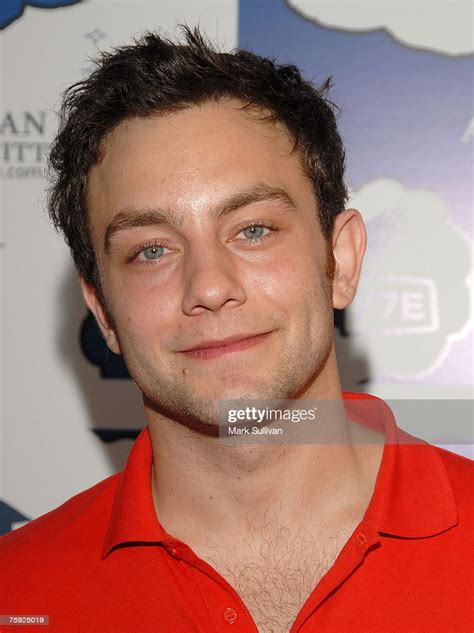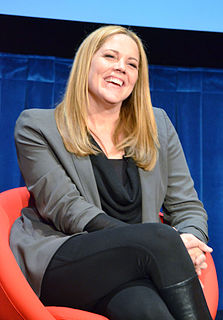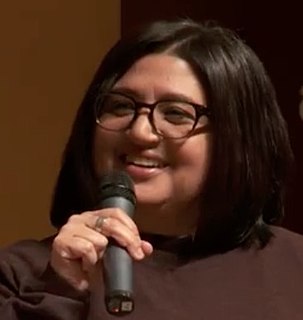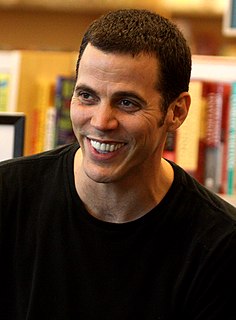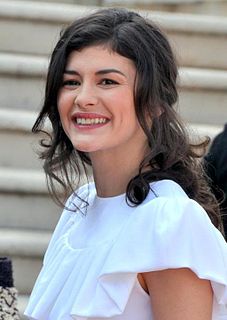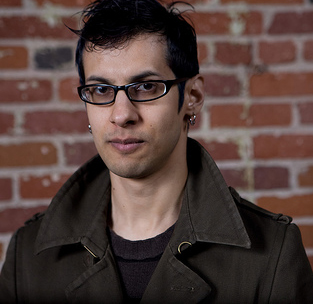A Quote by Jeffrey Dean Morgan
Showing fear is like having comedic timing because I think actors have a tendency to go way over the top with it, and that sort of loses steam for what's going on. The audience sees right through that and laughs at you, so it is something that I'm aware of.
Related Quotes
If one feels the need of something grand, something infinite, something that makes one feel aware of God, one need not go far to find it. I think that I see something deeper, more infinite, more eternal than the ocean in the expression of the eyes of a little baby when it wakes in the morning and coos or laughs because it sees the sun shining on its cradle.
It just gives us that adrenaline charge when we go on. We know we're gonna come off two hours later, but we're pushing it all the way; we build it right through. It's amazing how it happens. It's sort of magical, because you couldn't do it in a rehearsal like that; you need that audience in front, and that's really what gets us going.
If we're having a glitzy over-the-top moment, fashion is very glitzy and over-the-top, you know, over-the-top. If we're having a moment where things are, you know, we're in a recession, fashion becomes quiet. So, in terms of popular culture, fashion and especially women's fashion is incredibly interesting, aside from satisfying just a particular need to create and arrange things in a way that one sees as beautiful. And so, in a certain way, it's fulfilling. In another way, it's very fleeting because it doesn't last very long. You know, a beautiful moment in fashion goes away very quickly.
The one thing that I love about the live audience is the energy level. Like, from the minute of cast introductions, it's just constant energy being traded back and forth. When you do something funny, the audience laughs; when you're being serious, you can, like, feel the tension going through the audience.
You're in a movie, so you have to think about how something plays. It's not like you're thinking about how an audience is going to react. You're trying to present the story. You're trying to illuminate the lives of these people in the story. So I'm thinking about how my behavior as this character best illuminates what's going on with them in this moment in time. I always say it's sort of the director's job. People think that the directors direct actors. No. Really, what the director's doing is directing the audience's eye through the film.
Cinema and theater - it's apples and oranges. You can't really beat movies. Yeah, when you're on an Oliver Stone set everybody brings their A game. Everybody brings their A game, from the top to the bottom and in between. In terms of theater you know there is no way to really duplicate that rush you get when you take an audience that is live and right there in front of you through the journey of a great play and you go through these emotions so that they can experience them without having to go through them themselves.
I like to think in camera, but at the last minute the most important thing is that there is something happening between the actors. But good actors can have a lot of scenes going around them but sometimes it sort of helps the performance because it takes their mind off of who they are supposed to be.
She laughs and looks out the window and I think for a minute that she's going to start to cry. I'm standing by the door and I look over at the Elvis Costello poster, at his eyes, watching her, watching us, and I try to get her away from it, so I tell her to come over here, sit down, and she thinks I want to hug her or something and she comes over to me and puts her arms around my back and says something like 'I think we've all lost some sort of feeling.






